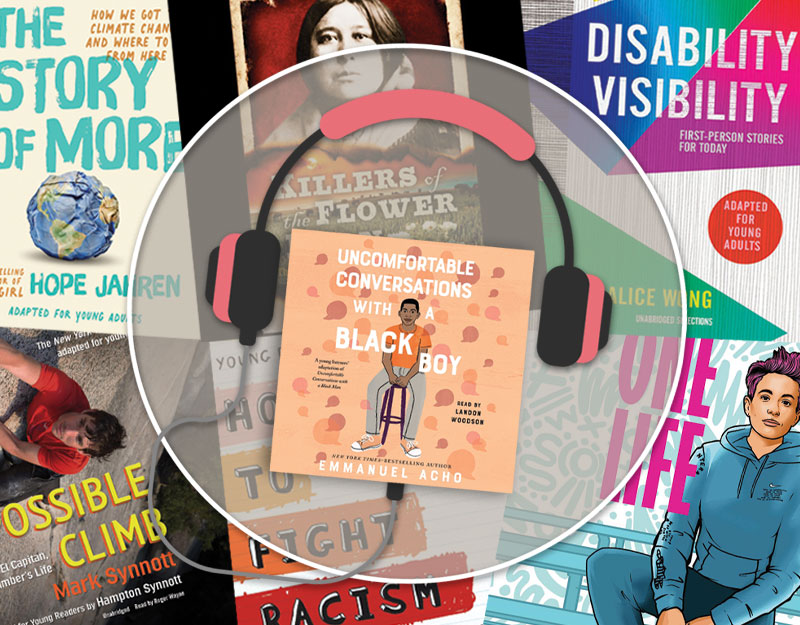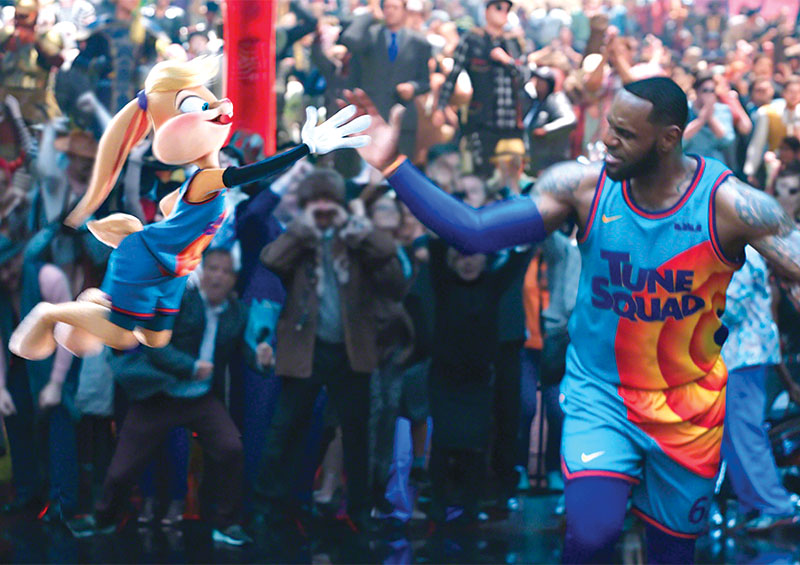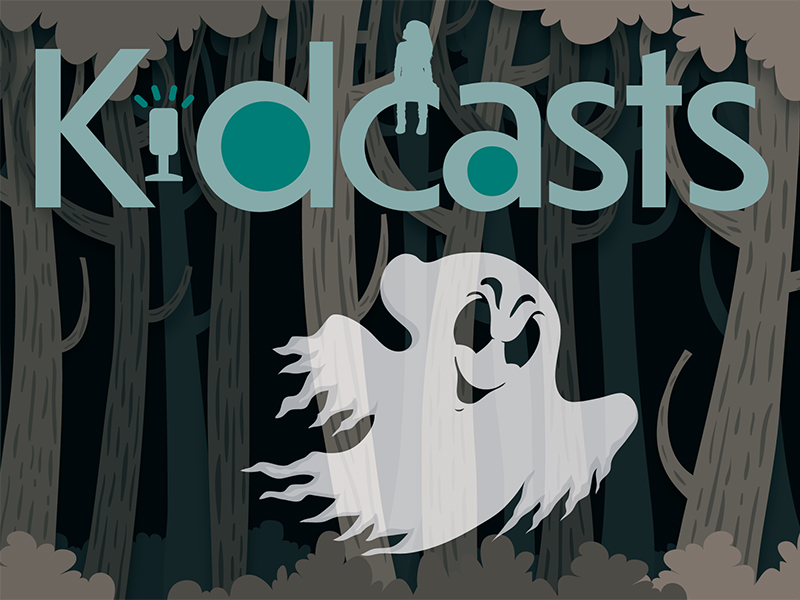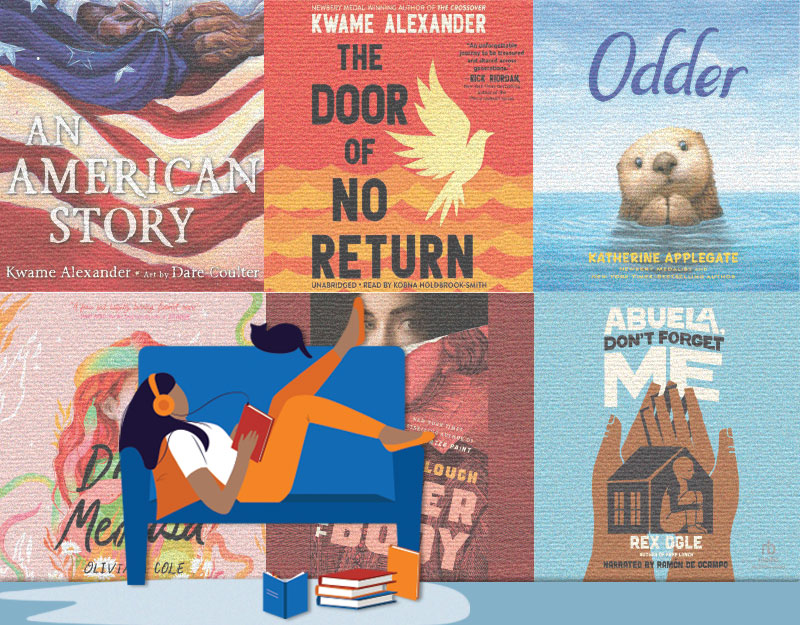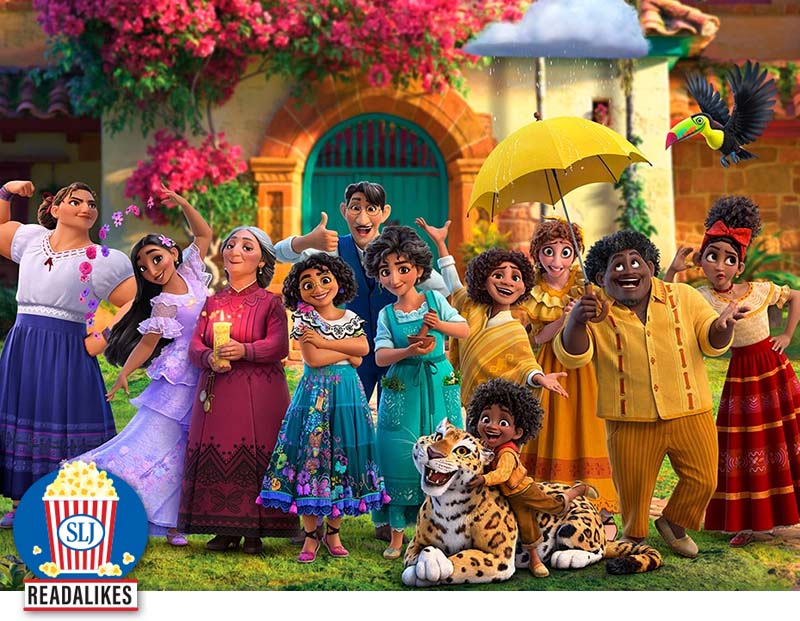Beautifully Me: A Talk With Nabela Noor
Should the matter come up, 2021 has turned out to be a particularly good year for body positivity in picture books. The sheer range of titles I’m seeing hitting the market right now, from a variety of different angles, is infectious. Whether it’s done with a story, as in the family-oriented THE BIG BATH HOUSE by Kyo Maclear, or as a catalog of body parts in BODIES ARE COOL by Tyler Feder, I’ve been impressed. Now we have BEAUTIFULLY ME by Nabela Noor. Here’s a rundown on the plot:
“From designer, creator, and self-love advocate Nabela Noor (@Nabela) comes a much-needed picture book about loving yourself just as you are.
Meet Zubi: a joyful Bangladeshi girl excited about her first day of school. But when Zubi sees her mother frowning in the mirror and talking about being “too big,” she starts to worry about her own body and how she looks. As her day goes on, she hears more and more people being critical of each other’s and their own bodies, until her outburst over dinner leads her family to see what they’ve been doing wrong—and to help Zubi see that we can all make the world a more beautiful place by being beautifully ourselves.”
The family framework in this was what particularly caught my eye. As such, I had some questions for Ms. Noor. And she, as it just so happens, had some answers:
ADVERTISEMENT
ADVERTISEMENT
Betsy Bird: Thank you so much for joining me on my blog today! I really appreciate your coming by. So right from the start, I’m curious about the origins of this book. You’ve mentioned on YouTube that you wrote it with a young Nabela in mind and that this is the book you wish you could have had when you were a kid. How did this book come to be?

Nabela Noor: Thank you so much for having me! This book is the book of my dreams, the book that younger Nabela needed. I never saw children’s books with characters who resembled me with families who looked like mine. I wonder how my self-image would have been impacted if I did feel seen and represented as a young girl. I’ve also spent my entire career focusing on helping young adults and adults unlearn harmful beauty standards and redefine beauty for themselves. At a certain point in my career, I wondered – what if I went straight to the trunk of the tree? What if I spoke to children directly and helped them learn how to define beauty for themselves so that they don’t have to unlearn or re-condition in the future? What if they could learn about healthy self-love journeys the right way the first time? And that is how Beautifully Me came to be.
BB: One of the things I find so interesting about the book is that it really tackles headlong the off-handed comments people make in their homes that affect the children living there. Even if the things they’re saying are about themselves. Older family members can forget that “the walls have ears” after all, and that by normalizing certain attitudes about body image we can inflict harm inadvertently. It’s a complicated idea but you do such a good job of making it understandable to kids. Was this always the format of the book? And was there something in your own life that inspired this idea?

NN: This book is inspired by my own life experiences in so many ways. Not only does Zubi resemble a younger me, but what Zubi experiences throughout her day are different experiences inspired by own childhood. I remember hearing my mother and loved ones casually ask if their clothing made them look big or “fat.” I remember watching my older sister, who was and still is my idol, experiment with diet after diet after diet and I wondered why someone so wonderful would ever feel inadequate or anything less than beautiful. I remember thinking one day after watching her eat one of her diet meals, “Maybe I should try this too so that I could be pretty” and I tried the food she left on the table. First of all, I remember thinking it tasted horrible. And I remember crying. Crying because I thought I needed to do that to be beautiful. I wish at that moment that someone would’ve told me what Baba and Amma expressed to Zubi at the end of the book. That conversation was just as much for younger me as it was for Zubi and the reader.
BB: In an interview I noticed that you mentioned that this book took a lot of work and editing to reach its final state. This was a great relief to hear, since I think there’s a perception that picture books are “easy” to write because they don’t involve too many words. Can you talk a little bit about what the editing process was for you? How does the final edition of BEAUTIFULLY ME differ from its earliest incarnation?
NN: This is my debut book and my debut as an author. I wrote every single word myself. No ghost writer. Because this was an independent endeavor when writing (until I met my wonderful editor, Kendra!) it took so many drafts before I felt like I did this story justice. The topic of self-love in general is so complex, and I weaved in an important plot which includes Zubi’s older sister experimenting with a diet. I wanted to be so sensitive to this subject and my editor, Kendra and I consulted with friends and experts who offered valuable feedback on how to approach these sensitive subject matters. I also wanted to weave in language learning by introducing Bengali words and I went through so many rounds where there was much more Bengali, some where there was less – it was truly a labor of love. I think people underestimate the difficulty of writing a children’s book. You have to approach the entire writing process with the underlying question “Would a child understand what I’m trying to communicate here?” “Is this sentence engaging enough?” “What is the pace for this story? Does it match my target audience and their reading comprehension?”

The final edition of Beautifully Me is both wildly dissimilar and fundamentally the same as the first draft. The core message remained the same as it was the backbone and reason behind my writing this book in the first place. But how we communicated the message of discovering what makes an individual “beautifully them” – that evolved over the 500+ days of bringing this story to life. It was a beautiful and complex experience that I would undergo over and over and over again. That’s the dream.
BB: Like all movements, the body positivity movement could easily fall into the trap of acting like it’s for white people, by white people, about white people. And certainly when it comes to picture books, the majority of stories with plots about kids like Zubi involve white protagonists. To be honest, I’m having a hard time coming up with any that aren’t! With that in mind, your book offers true intersectionality, in addition to its writing and beautiful art. Who do you envision as the audience for this title?
NN: I believe the audience for this book is anyone who has ever felt othered, as my goal when writing this book was to not only offer representation for my own community who is wildly underrepresented but also to uplift those who have ever struggled with their insecurities and their individual self-love journeys. Self-love is universal. The need for it to thrive as individuals is universal. I hope that we can all agree that the world would be a better place if we all had a healthier sense of self and healthy self-esteem. This book is for anyone who wants to equip themselves and their loved ones with a little encouragement as they navigate their self-love journeys.

BB: Right away the book grabs you with that cover. I often say that it’s just luck of the draw whom an author gets paired with, and it looks like luck has been a lady with you since you got Nabi H. Ali. His art is utterly gorgeous, really bringing to life the colors and hues you invoke with your writing. Nabi is Tamil-American and you’re Bangladeshi-American. When considering the art, did any changes have to be made or did he pretty much have everything perfect from the get-go?
ADVERTISEMENT
ADVERTISEMENT
NN: When searching for the artist to work with to bring Beautifully Me to life, I was extremely particular. The moment I laid eyes on Nabi’s work, I knew he was the artist for this book. It is so amazing that two South Asian creatives came together to bring this book to life, and it’s so apparent that Nabi just gets it from the cover to the very last page.
The lengthiest part was finalizing Zubi because I had such a specific vision in mind for her down to her hair clips, buttons, hairstyle, facial features and more. And Nabi was so gracious and collaborative when perfecting Zubi. Once we got Zubi completely nailed down, Nabi was able to bring Zubi’s vibrant world to life in ways that were so much bigger and more magnificent than I could have ever imagined alone. The touches, details and features he added to each page and each character felt so right and so real. I couldn’t be more thankful to have had the opportunity to work with him in bringing the book of my dreams to life.
BB: Once you’ve been bitten by the writing bug it can be hard to quit. Any plans for any other children’s books in the future?
NN: My dream is for Beautifully Me to become a series. I would love to continue following Zubi along on her journey through childhood. Zubi has so much more to discover and share with the world, and I hope I have the opportunity to use my writing to do just that.
A great deal of thanks to Nabela Noor for so patiently answering my questions and to Shivani Annirood and the folks at Simon & Schuster for setting this up. BEAUTIFULLY ME is available in bookstores everywhere.
Filed under: Interviews
About Betsy Bird
Betsy Bird is currently the Collection Development Manager of the Evanston Public Library system and a former Materials Specialist for New York Public Library. She has served on Newbery, written for Horn Book, and has done other lovely little things that she'd love to tell you about but that she's sure you'd find more interesting to hear of in person. Her opinions are her own and do not reflect those of EPL, SLJ, or any of the other acronyms you might be able to name. Follow her on Twitter: @fuseeight.
ADVERTISEMENT
ADVERTISEMENT
SLJ Blog Network
The Moral Dilemma of THE MONSTER AT THE END OF THIS BOOK
Winnie-The-Pooh | Review
Parsing Religion in Public Schools
ADVERTISEMENT



